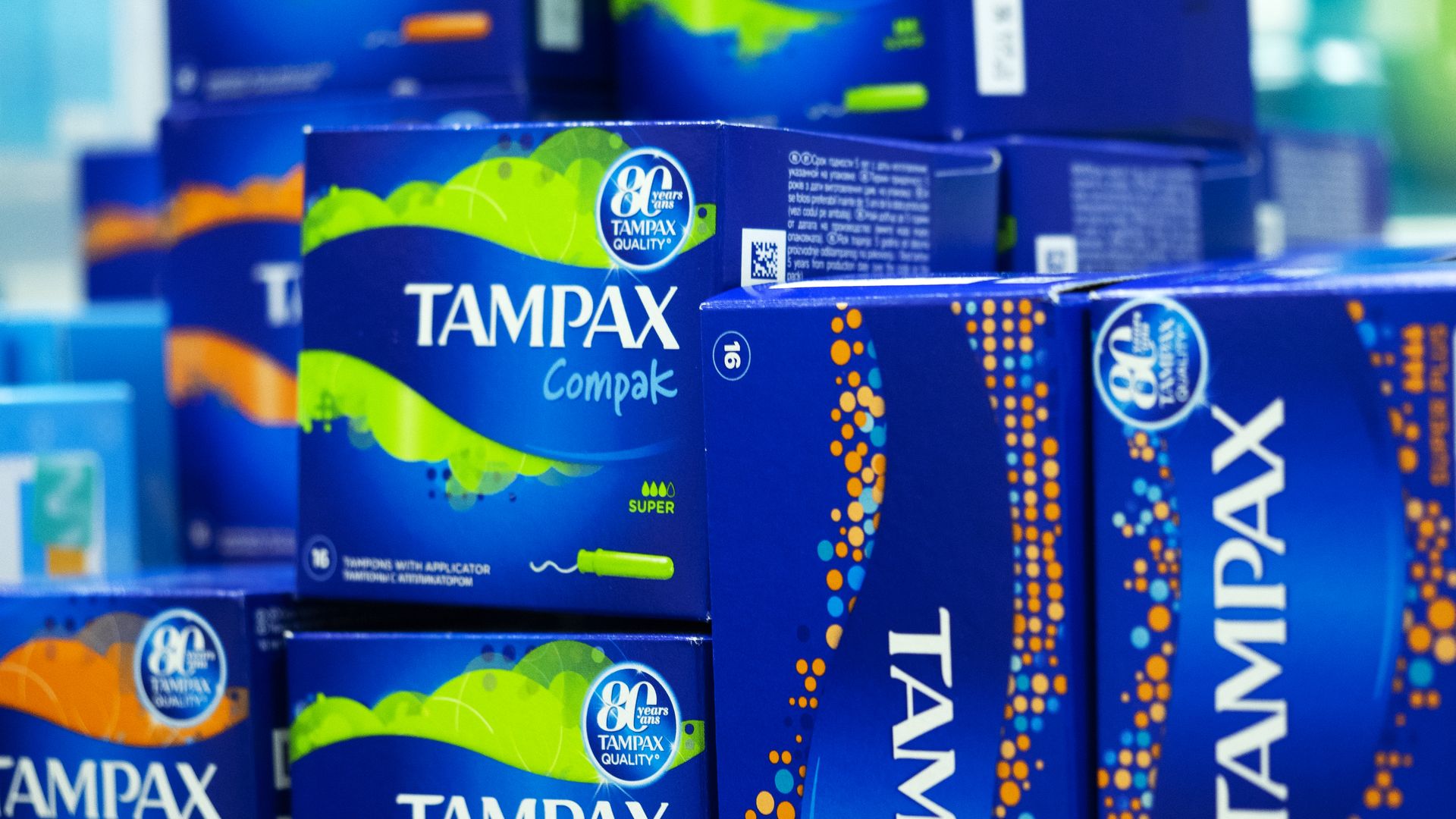Targeting the "tampon tax"
Add Axios as your preferred source to
see more of our stories on Google.

Photo: Igor Golovniov/SOPA Images/LightRocket via Getty Images.
The sales tax on basic necessities for millions of girls and women—the so-called tampon tax—is the latest battlefront in the gender wars.
The big picture: The products are sold tax-free in many states, but 30 exclude menstrual products from those lists. There girls and women pay sales tax on pads, tampons, menstrual cups, and other women's hygiene products.
- In Indiana, for example, sales tax on those items brings in almost $5 million annually, according to Period Equity, a group advocating to remove the tax.
- State lawmakers who favor taxing the products often argue that states rely on the revenue, and one Tennessee legislator expressed concern that women would buy up supplies if they were tax-exempt.
But, but, but: Ten states in recent years — Connecticut, Florida, Illinois, Ohio, Nevada, New York, Rhode Island, Utah, Washington and California — have succeeded in passing legislation that exempts tampons, pads, and in some states, menstrual cups as well.
Some legislatures have gone so far as to make menstrual products free in public facilities.
- New York City since 2016 has provided menstrual products without charge in public facilities, including schools, jails, and shelters, and two years later New York Gov. Andrew Cuomo expanded the program to public schools statewide.
- A proposal in the Los Angeles City Council would make menstrual products free in public restrooms, per the Los Angeles Times.
Of note: The CARES Act — passed last month to offer aid during the coronavirus pandemic — has permanently made women's hygiene products, including tampons, pads and cups eligible for reimbursement from for those with flexible spending accounts or health savings accounts.
What they're saying:
"In order to have a fully equitable and participatory society, we must have laws and policies that ensure menstrual products are safe and affordable for everyone who needs them. The ability to access these items affects a person’s freedom to work, study, stay healthy, and engage in the world with basic dignity. And if anyone’s access is compromised, whether, by poverty or stigma or lack of education and resources, it is in our societal interest to ensure those needs are met."— author Jennifer Weiss-Wolf in "Periods Gone Public"
Go deeper:
